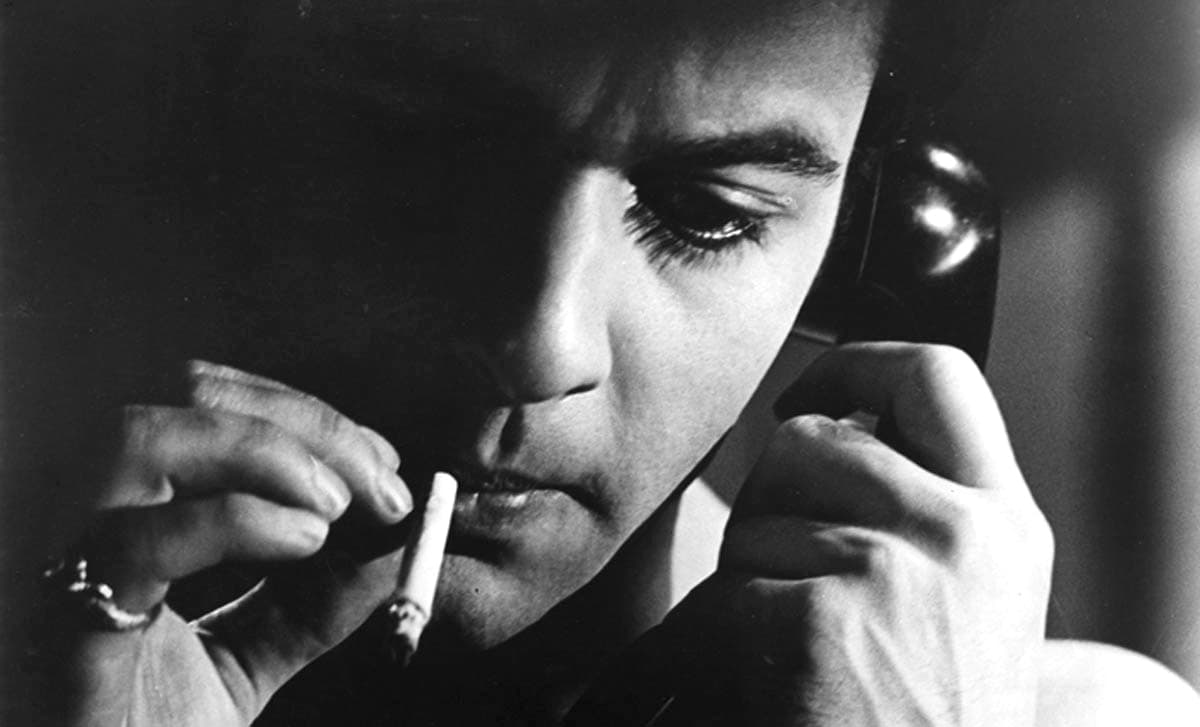Lifestyle
Film Forum Showcases Cult Classic ‘Who Killed Teddy Bear’

Film Forum is presenting a screening of the 1965 film Who Killed Teddy Bear, directed by Joseph Cates. The venue describes the film as “the apex of lurid ’60s exploitation movies,” teeming with a sense of “sweaty frustrated libidinousness.” This cult classic, which aims to challenge Hollywood’s norms, features provocative themes, including references to pornography and lesbian clubs.
The film stars Jan Murray, although he is perhaps best known today among comedy enthusiasts and those who grew up watching daytime television. Born in the Bronx, Murray gained popularity through his performances in vaudeville and became a headliner in Las Vegas. He also hosted various game shows and telethons until his passing in 2006 at the age of 89. Despite his notable career, Murray’s role in Who Killed Teddy Bear is overshadowed by that of Sal Mineo, who plays a crucial part in the film’s lasting legacy.
Mineo, also a Bronx native, was born to Italian immigrants and found success in acting from a young age. His breakout role as Plato in Nicolas Ray’s Rebel Without A Cause (1955) earned him an Oscar nomination and established him as a pioneering figure for LGBTQ representation in cinema. In Who Killed Teddy Bear, Mineo steps out of his typical casting by portraying a villain, a decision that explores complex themes of sexuality and identity.
The film is set in a gritty, black-and-white Manhattan of the early 1960s, featuring a cityscape filled with low-rent apartments, questionable movie theaters, and bookstores selling risqué literature. Within this backdrop, the story follows Norah (played by Juliet Prowse), an aspiring actress who works as a disc jockey in a nightclub. Her life takes a dark turn when she receives obscene phone calls and discovers a decapitated teddy bear left on her bed.
As the narrative unfolds, Norah seeks help from Lieutenant Dave Madden, portrayed by Murray, whose interest in her safety leads to unsettling interactions. The film’s exploration of psychological tension and societal issues demands a director with a nuanced understanding of human behavior, a quality that critics argue Cates sometimes lacks.
Despite its flaws, Who Killed Teddy Bear possesses a unique appeal that resonates with viewers who appreciate the darker side of cinema. It serves as a compelling reflection of its time, inviting audiences to engage with its themes of exploitation and identity. Film Forum’s screening is an opportunity for both new viewers and long-time fans to experience this provocative piece of cinematic history.
-

 Lifestyle3 months ago
Lifestyle3 months agoLibraries Challenge Rising E-Book Costs Amid Growing Demand
-

 Sports3 months ago
Sports3 months agoTyreek Hill Responds to Tua Tagovailoa’s Comments on Team Dynamics
-

 Sports3 months ago
Sports3 months agoLiverpool Secures Agreement to Sign Young Striker Will Wright
-

 Lifestyle3 months ago
Lifestyle3 months agoSave Your Split Tomatoes: Expert Tips for Gardeners
-

 Lifestyle3 months ago
Lifestyle3 months agoPrincess Beatrice’s Daughter Athena Joins Siblings at London Parade
-

 World3 months ago
World3 months agoWinter Storms Lash New South Wales with Snow, Flood Risks
-

 Science3 months ago
Science3 months agoTrump Administration Moves to Repeal Key Climate Regulation
-

 Science2 months ago
Science2 months agoSan Francisco Hosts Unique Contest to Identify “Performative Males”
-

 Business3 months ago
Business3 months agoSoFi Technologies Shares Slip 2% Following Insider Stock Sale
-

 Science3 months ago
Science3 months agoNew Tool Reveals Link Between Horse Coat Condition and Parasites
-

 Sports3 months ago
Sports3 months agoElon Musk Sculpture Travels From Utah to Yosemite National Park
-

 Science3 months ago
Science3 months agoNew Study Confirms Humans Transported Stonehenge Bluestones









